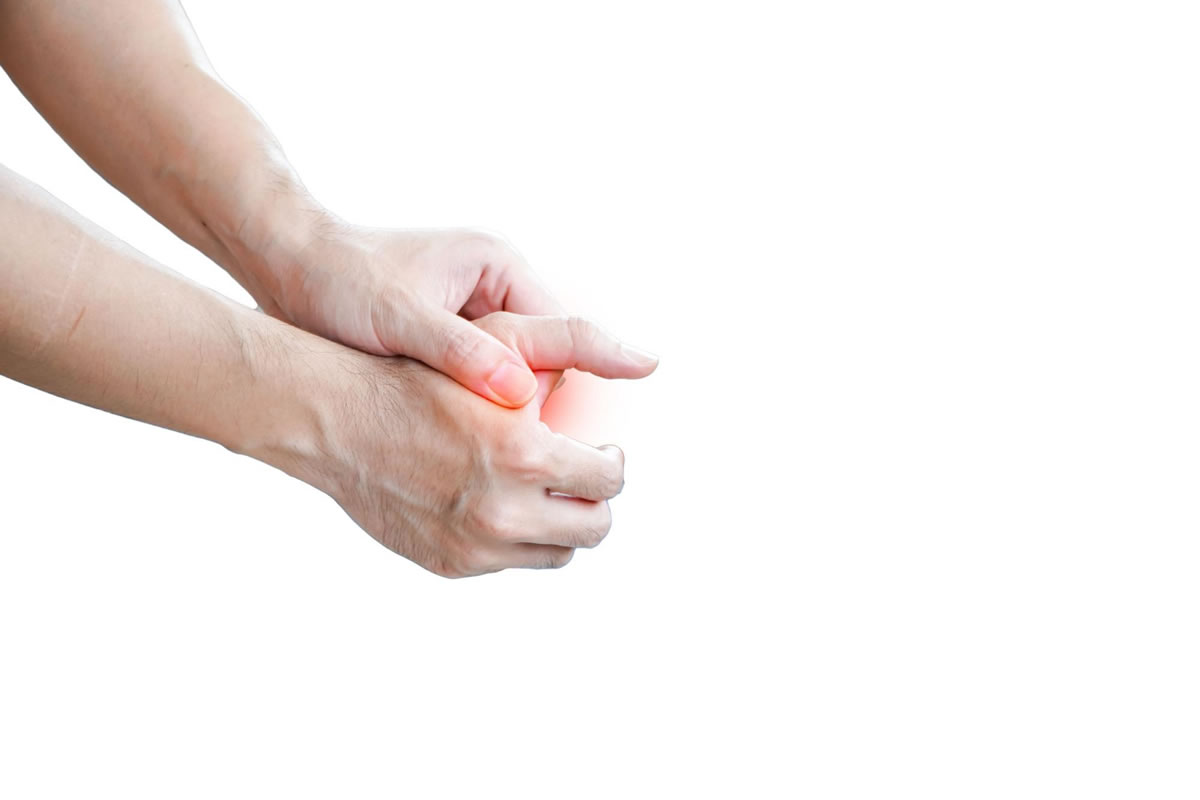
Discovering that there's something wrong with your hands can be very overwhelming. Whether it be trouble washing your face, putting your hands in your pocket, or even gardening, problems with your hands can make life much more challenging.
Experts explain these two common conditions that affect the hand, including:
Dupuytren's disease
A thickening of the tissue in the thumbs, fingers, or palms is called Dupuytren's disease. This illness can cause the fingers to flex up because of cords of tight tissue or lumps that have developed. Daily tasks may not be affected in the early stages of Dupuytren's disease but as the disease progresses, so does the restriction of movement. For example, patients often report trouble putting their hands in their pockets, putting gloves on, holding coins in their palms, and washing their face because a flexed finger will poke them in the eye. Dupuytren's disease has risk factors such as high alcohol intake, smoking, previous hand trauma, certain medications, diabetes, and previous manual working conditions. This disease does also has genetic markers.
The earliest stages of Dupuytren's disease require condition monitoring. Several treatment options are available once the thumb or finger flex on becomes a problem. A fasciotomy may be advised for some people, where a needle is poked through the skin to perforate the tether inside the thumb or finger. Even though a fasciotomy is straightforward, it does have a high recurrence rate. Surgery is the most conventional treatment to remove diseased tissue. Surgery for Dupuytren's disease involves cutting the affected thumb, finger, and/or palm. There are ongoing studies to determine the effectiveness of a new unique injection that helps digest a diseased tissue component.
Carpal Tunnel Syndrome (CTS)
Carpal Tunnel Syndrome can cause very intrusive pins and needles in the hand. People suffering from Carpal Tunnel Syndrome can have trouble sleeping and wake up at night with pain in their hands. Symptoms of CTS come about from median nerve irritation at the wrist. Risk factors for CTS include hypothyroidism, wrist injuries, pregnancy, diabetes, and specific career choices.
CTS causes reduced feeling in the fingertips, making some people report difficulty buttoning their clothes or doing fine needle work. Weakness in the hand and constant numbness in the fingers may develop as the condition progresses. Wasting away of hand muscles has been an issue with more severe cases of CTS, especially at the base of the thumb. Wearing a wrist splint at night is usually the first course of treatment for CTS. Relieving pressure on the nerve by keeping the wrist straight is the purpose of the splint. A wrist injection may be advised in some cases.
Surgery by an orthopedic surgeon in Altamonte Springs is another treatment option for CTS. The primary purpose of surgical intervention is to stop ongoing damage to the median nerve and release pressure. Resolution of symptoms and full recovery to the nerve can take several years after surgery, though many symptoms improve rapidly. Permanent numbness and weakness may be an issue after surgery if the nerve has already been too damaged.
Your hands are an essential part of your daily life. If you have hand problems that get more problematic over time or do not resolve quickly on their own, you should seek the advice of a physician or orthopedic surgeon in Altamonte Springs.